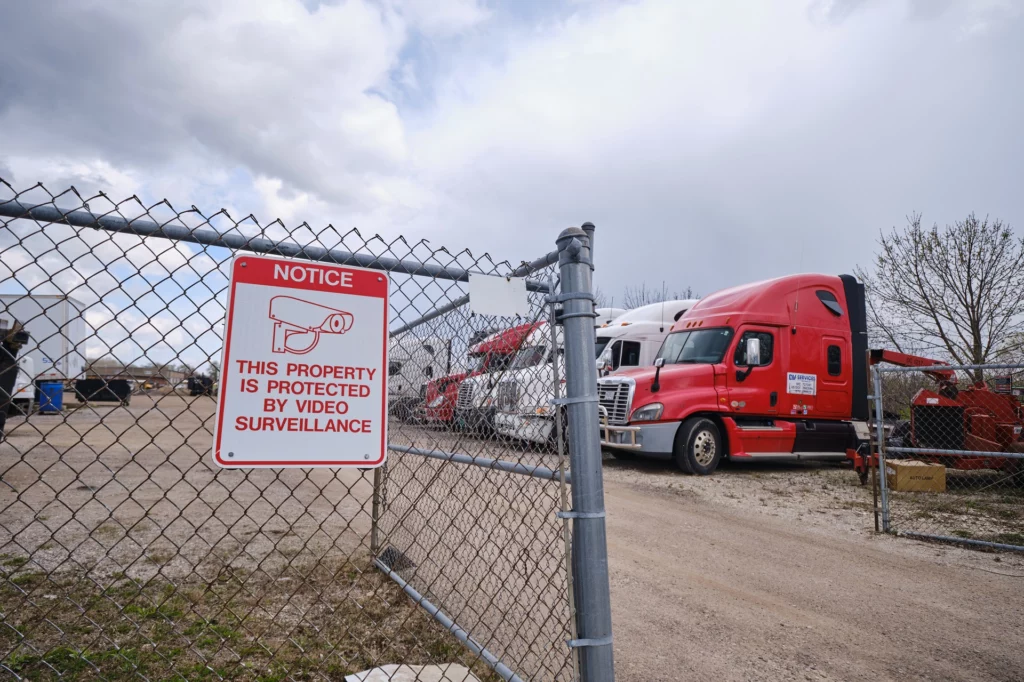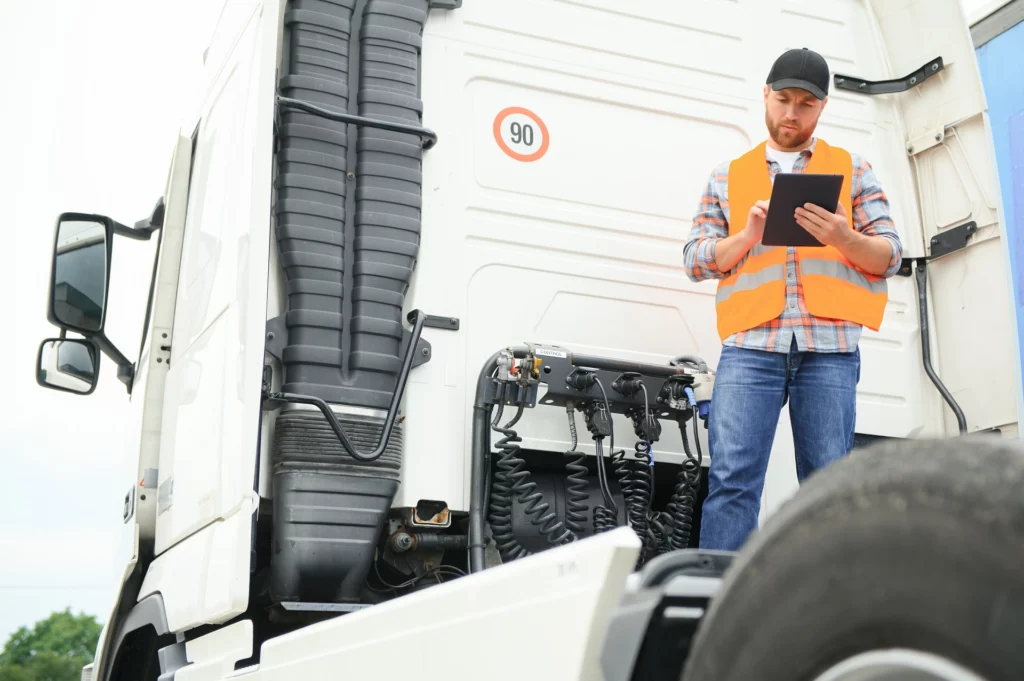Choosing the NVR Camera System That’s Best for Your Business

Wise Systems

Safety and efficiency are top priorities in fleet management operations, both of which are aided by various technology and software solutions. One such solution that can benefit your fleet operation is NVR camera systems.
These systems record and store video footage over a network, allowing for remote access and monitoring, which can be vital for maintaining safety and accountability. But how do you choose the NVR camera system that’s best for your business? In this post, we’ll review the important features and capabilities of NVR camera systems for fleet management and what to look for when selecting a system for your fleet.
In this article:
- What is an NVR Camera System?
- How Does an NVR Camera System Work?
- Benefits of NVR Camera Systems for Fleet Management
- What to Look for When Choosing an NVR Camera System for Your Business
- Final Thoughts
- Frequently Asked Questions
What is an NVR Camera System?
An NVR (Network Video Recorder) camera system is a type of surveillance system that uses a network to transmit and store video data. The data is typically stored on an internal hard drive, and storage capacity and retention time depend on the size of the hard drive, the recording quality, and other settings.
How Does an NVR Camera System Work?
NVR camera systems use IP (Internet Protocol) cameras that capture video footage and then encode and transmit the data over a LAN (Local Area Network) or the internet. This differs from traditional analog CCTV systems, which send video to a DVR (Digital Video Recorder) through coaxial cables.
Transmitting the video data over a network allows for greater camera placement and remote access flexibility compared to traditional CCTV systems. NVR systems can usually be accessed remotely using smartphones, tablets, and computers.
NVR systems also typically come with software that provides functionality such as live viewing, playback, and in some cases, more advanced features such as motion detection, facial recognition, and analytics.
Benefits of NVR Camera Systems for Fleet Management

NVR camera systems offer numerous benefits for fleet management. Let’s explore a few of the most important ways your fleet operations can benefit from an NVR camera system.
Enhanced Security & Surveillance
NVR systems provide high-quality video surveillance, helping in monitoring and securing fleet vehicles. They can deter theft, vandalism, and unauthorized use of vehicles.
Remote Access & Real-Time Monitoring
Fleet managers can access video feeds remotely to monitor vehicles in real-time, ensuring drivers are following the correct routes and schedules. This is especially useful for tracking deliveries, optimizing routes, and managing logistics efficiently.
They can also help fleet managers monitor driver behavior, ensuring compliance with company safety protocols, traffic laws, and regulations. This can lead to improved driver training and safer driving practices.
Evidence Collection in the Event of Accidents
In case of accidents or incidents, NVR video footage can be crucial for insurance claims and legal matters. These systems provide clear evidence of what happened, helping to resolve disputes and promote driver accountability.
Scalable & Cost-Effective
NVR systems require little maintenance, making them cost-effective for many businesses. It’s also possible to add additional cameras as needed, providing seamless scalability as your fleet grows.
What to Look for When Choosing an NVR Camera System for Your Business

There are several key factors fleet managers should consider to ensure you choose the best NVR camera system for your business:
- Camera Quality & Resolution: High-resolution cameras provide clearer, more detailed images, which are crucial for identifying details in the event of incidents or accidents. Look for cameras with good resolution (at least 1080p), night vision capabilities, and durability to withstand various weather conditions.
- Storage Capacity: Ensure the NVR system has adequate storage capacity to record and store footage for the amount of time regulations or company policies require. This depends on the number of cameras, the cameras’ resolution, and how long you need to retain the recordings.
- Real-time Monitoring & Accessibility: The ability to access real-time video feeds remotely via smartphones, tablets, or computers is essential for effective fleet management.
- Durability & Reliability: Look for an NVR camera system with robust, durable cameras that are properly rated to withstand outdoor environmental conditions such as very high or low temperatures and humidity. Cameras should also be robust enough to withstand the stress of vehicle operations, such as vibrations and shocks.
- Network Connectivity: If you plan to access video feeds remotely, consider the system’s network capabilities and bandwidth requirements. Choose an NVR camera system that integrates seamlessly with your company’s existing network infrastructure.
- Advanced Features: Look for a system that offers advanced capabilities such as motion detection, facial recognition, automatic alerts, and GPS integration.
- Ease of Use: While you want an NVR camera system that offers advanced functionality, it’s important to balance that functionality with ease of use. Look for a system with user-friendly software for viewing and managing video footage and helpful features such as search capabilities and easy playback.
- Warranty & Ongoing Support: Even the most robust NVR camera systems can malfunction or become damaged in the right circumstances. Look for a system that offers an adequate warranty that covers defects for an appropriate amount of time. In addition, consider whether the company offers ongoing support to help you troubleshoot any issues that arise.
Final Thoughts
Check out our ever-growing list of tech partners and integrations! We’re adding the list to the list regularly and would love the opportunity to work with you, too. Join us! https://t.co/GqwPbLLGxy pic.twitter.com/xp0yv1AF3y
— Wise Systems (@goWiseSystems) April 26, 2023
Choosing the right NVR camera system is important, and it’s not a decision that you should take lightly. Conduct in-depth research, know what features and capabilities you’re looking for, and compare multiple systems to determine the best fit for your business.
One of the most important considerations is selecting an NVR camera system that integrates seamlessly with your other technologies. The Wise Systems delivery automation platform is a robust suite of solutions for every stage of the delivery process that integrates with a variety of tools and technologies to help you build a delivery ecosystem that functions flawlessly and supports your business effectively.
With Wise Systems Connect, you can connect the Wise Systems platform to your existing last-mile ecosystem, allowing you to automate and boost efficiency with pre-built data integrations. Book a demo today to learn how Wise Systems can support your last-mile delivery operations.
Frequently Asked Questions
What are the functionalities of NVR?
NVRs provide several functionalities, including recording and storing video footage, remote access to live and recorded video feeds, playback and search capabilities, motion detection capabilities, alerts, and more.
What are the different types of NVR systems?
There are two primary types of NVR systems:
- Standalone NVRs: These are dedicated devices designed specifically for recording and managing IP camera feeds. They are typically easier to set up and use.
- Software-based NVRs: These involve NVR software installed on a computer or server. They offer more flexibility and customization but may require more technical expertise to manage.
What is the difference between NVR and IP cameras?
NVR (Network Video Recorder) and IP (Internet Protocol) cameras are different components of a surveillance system. IP cameras are digital video cameras that capture footage and use IP networks to transmit video data. They are standalone units that connect to a network.
An NVR, on the other hand, is a recording device that receives the video data transmitted by IP cameras. It records and stores this data, and also provides a platform for viewing and managing the video feeds from multiple IP cameras.
Can NVR work without internet?
Yes, NVRs can work without an internet connection for local recording and viewing. In this setup, IP cameras connected to the NVR through a network will continue to record and store footage on the NVR’s hard drive. However, without the internet, remote viewing and access to footage from outside the local network will not be possible.

